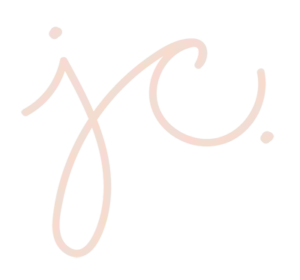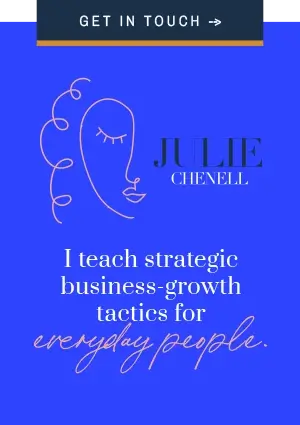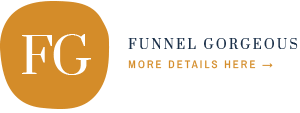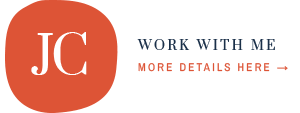Subscribe On:
Full Transcript:
Today I want to talk to you about an unfortunate event that happened to me last week, and sort of the ethical arguments it brought up in my head. Last week I wrote a post on abortion, it’s obviously a big topic in our society right now. And I got a lot of feedback on it…
I noticed that a woman had basically copied the text and pasted it as her own without attribution. So I went into that thread and I said, ‘Hey, I’m glad my words are resonating with you, can you please go ahead and attribute it to me and add the link to the post?” And she said, “Oh, I’m so sorry. I got busy and I got a call, I was totally going to attribute it.”
And I said, “You know, that’s fine. I understand, just fix it and we’re all good.” And I didn’t really think much else of it because I tend to believe the best of people, I’m a pretty trusting person. And it was later that some of my followers, who were a little bit more suspicious, they had their bullshit meter dialed in a little bit better, said to me, “Julie, she’s been plagiarizing you for months.” And sure enough on her posts, on her timeline on Facebook were tons of my personal posts, all written as if she had done it.
And these were things that were really personal. I had been talking about dialectical behavioral therapy, and my feelings about animals and the environment and just stuff that had taken me a long time to write. So of course, I was furious.
And it got me thinking about plagiarism and intellectual property and how the whole community at large, internet marketing, online marketing handles this concept of intellectual property. And because when she finally got called out, she told me that you know, this is what was modeled in the community, we’re supposed to hack people and do what’s working and not try to reinvent the wheel. And I thought, gosh, what a horrible, horrible description of market research.
So I wanted to talk to you today about how to figure out when you’re stealing somebody else’s ideas, or when you’re just doing research that’s going to help you become a better service provider, entrepreneur, etc. So the first thing I want to say is if you go back to high school when you had to write those horrible book reports, we were taught when doing research, to go do research with a lot of different texts. The idea was that you were going to look at books and magazines, and I don’t know, remember those things in the library that would like…microfiche, is that what it’s called? I can’t even remember.
And then once the internet came along then it was looking on internet websites and trying to figure out which ones were credible. And the idea was that you would come up with lots of different research, and then what would you do? You would copy down a footnote, and it would be the title, the author, the date, the original source. You’d source it. And then you’d go off and write your report.
And I remember in high school we had these APA style, you had to be, it was a big deal and in college it became even bigger of a deal, how you would credit people for the research you had done. I say all that to then bring it into the online marketing space.
If you are going to create content, I don’t care if it’s free content or paid content, but especially if it’s content that you’re going to sell, of course you would expect that you’re going to have mentors and people that you’ve learned from that you are going to then want to bring into your teaching. It’s all in how you do it. We don’t expect anybody to become a complete original author, with original work, because a lot of this stuff has already been researched extensively.
What we do say is, okay if you’re going to talk about, let’s say you’re going to do a course and you’re going to talk about productivity, and you remember the whole 10-50-100 time stacking that I talked about. You could say, “In Julie Stoian’s podcast episode number blah, blah, she talked about this concept, blah, blah.” and then in your course, in your program link directly to the source. You will eliminate so much headache, and you know what else? When you are creating content, in order to make sure that you are introducing your methodology to the market, your new idea to the market it’s best because if you think of it that way, you are obligated to have your own spin on it, your own idea on it. And that will make you ultimately a better teacher, a better course creator, a better provider.
So just freaking attribute it. That’s all I, that’s the biggest thing I can say. If you are teaching something that has somebody else’s idea, pay honor to that idea, link and credit that person, send traffic their way. It is very, very rare for me to be upset if I see someone talking about something that I taught, if they credit me.
Now the second thing is, what if you decide that you want to offer something or teach something and it’s so, it’s so well done, it’s so complete, that you’re like I don’t really know what I could add to this, this is exactly what I want to sell. If that’s the case, my recommendation is that you go to the original author and you ask them if there’s an opportunity to white label their product.
Now this has happened to me multiple times with proposal secrets. People love the course, they think it’s excellent, they want to teach the same exact thing. And I am so happy to have them white label my product and sell it, and by licensing to use then to find out that they hacked it, or they literally recreated all the content, just maybe changed three words, and that was it.
So go to the original author and see, I know when I was selling proposal secrets for $800, I was giving licenses away to people for $97. I said, “Yes, you can go sell it for whatever you want. You pay me $97 for every login.” Simple.
So those are two ways that you can make sure that you’re not plagiarizing. The next thing is if you are getting ready to write a book, write a blog post, record a podcast, anything. I actually sort of reverse engineer my research. So what I will do is I will without looking at any other material, see what I can produce on my own. Once I’ve got all my original ideas and thoughts and feelings out, then I will go and do the research.
Number one, I may find that some things are the same but because I wrote it sort of in isolation, it’s so much my own words that there’s no risk of plagiarism. In other cases I’ll go out and do research and I’ll be like, “Oh that’s a great idea.” And it will accentuate my writing, as long as I give attribution.
So when it comes to course creation and content, podcasts, blog posts, Facebook posts deliberately do it in your own words without looking at any of your competitors first, and then go out and do the research. It’s simply switching of the chronology of how you do things, because it will make you better.
I know that because a lot of things out there online are what we would call swipe files, it’s easy to get confused. A perfect example would be Funnel Gorgeous, right. This is a brand that I co-created with Kathy Olsen, we sell these gorgeous premium templates for very inexpensive every single month. And a lot of our service providers buy those templates and then use them as the basis for the design.
So what we’ve said is, you know, if you’re a service provider and you are going to go ahead and work with somebody and build a funnel, use it as a base and then design it and customize it for that customer and that’s fine, but you can’t simply turn around and resell them, because essentially what you’re doing is you’re stealing money from us because we sell them, not you. Versus, we don’t do done for you customization of the funnels, so it would stand to reason, if you want to charge the money for your time to customize the template for them, that is different.
So even though this is a lot of nuance stuff, it always helps when you ask, when you reach out to the original author, when you reverse how you do your research. When you do you research after when you’ve come up with your idea, instead of before, and if you create great attribution. If you stick to those three rules, you are going to be well on your way to avoiding the uncomfortable situation that this girl found herself in when I realized she’d been plagiarizing my content for months.
And lastly, don’t try to pretend you have feelings about things that aren’t your feelings. People will smell through inauthenticity so fast and it’s way better to just be honest about where you are and where you’re headed than it is to try to pretend that you’ve got an expertise that you don’t.
So anyway, that’s my little soap box for today. I hope you have a great week, talk to you soon.









As a mom, this has me completely rethinking the whole morning routine. I’ve been trying to figure out ways to be more productive as a stay at home mom. Thanks for the post!